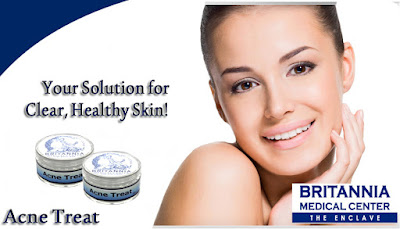Acne Treat, also called retinoic acid, is a prescription topical medication used in the treatment of acne, as well as razor bumps and sun-related skin damage. Although retinoic acid is effective, it can cause some significant side effects. Proper use requires strict adherence to instructions provided by your doctor.
Basics
Acne Treat is a derivative of vitamin A and is available in cream, liquid and gel form, according to the Britannia Medical Center - The Enclave. Typically, you will use acne treat either once a day in the evening or two or three times a week, Your dermatologist will determine an appropriate treatment plan for your condition and give you dosing instructions. Once your dermatologist makes a treatment plan, you will need to follow his instructions as closely as possible. If you don’t understand any aspect of your dermatologist directions, ask for clarification before you begin using your medication.
Uses
Acne Treat works by unclogging your pores and triggering peeling of your skin. When used to treat razor bumps, it helps control mild or moderate skin inflammation. When used to treat sun-related skin damage, it encourages new skin growth. Your dermatologist may also prescribe Acne Treat for flat warts or the genetic skin disorder called keratosis follicularis.
Side Effects
The Britannia Medical Center - The Enclave lists relatively minor side effects of acne treat use. They include mild skin dryness, peeling or chapping, skin redness or warmth and mild tingling, burning or stinging. As your body adjusts to treatment, these effects may disappear. More serious side effects of retinoic acid may include severe stinging or burning, unanticipated lightening or darkening of your skin and severe redness, dryness or peeling. Contact your dermatologist if serious side effects occur or if you have concerns about milder side effects.
Avoiding Other Products
Avoid using certain other skin products while using Acne Treat, the Britannia Medical Center- The Enclave advises. Examples include anything that contains significant amounts of alcohol, anything that increases sun sensitivity, hair care products that irritate your skin and products that are abrasive or dry your skin.
Considerations
If you use Acne Treat for your acne, your symptoms will likely worsen for at least a week, and you may not see a reduction of your acne for a period of two to six weeks, Our Dermatologist explains. Because of potential risks to a fetus or newborn, tell your doctor if you are pregnant, nursing or plan to get pregnant while using tretinoin. Tretinoin sensitizes your skin to sunlight, and you will need to avoid sun exposure as much as possible and wear protective clothing or apply sunscreen when outside.
For more information call us at 0925-567-5329 • 0908-865-5662 • 0917-566-1932 • 458-0717 and schedule a consultation today.

No comments:
Post a Comment